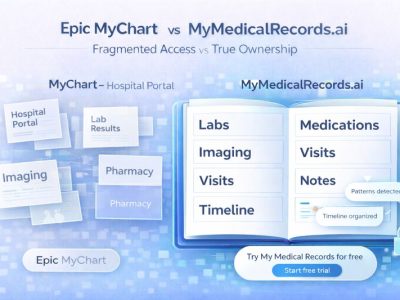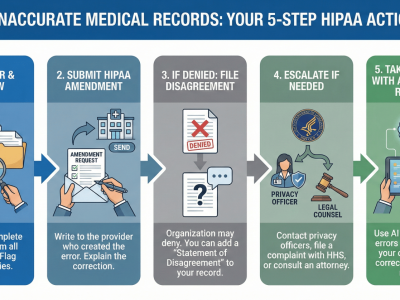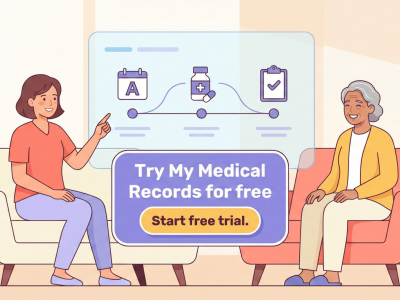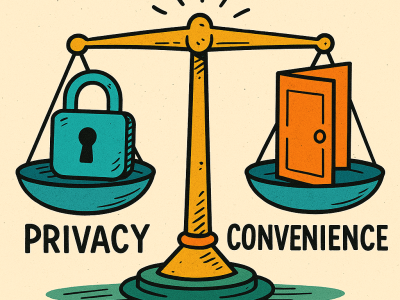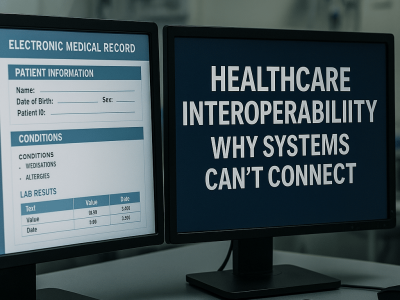Understanding how long medical records need to be kept is essential for patients, healthcare providers, and legal professionals. This guide explains the varying retention timelines by state and provider type, and why securing these records digitally with services like My Medical Records is the safest long-term solution.
KEY TAKEAWAYS
Medical records retention timelines vary depending on federal law, state law, and healthcare provider type.
Most providers retain adult patient records for 7 to 10 years, while pediatric records are often kept longer.
Secure digital storage helps preserve important medical documents beyond required retention periods.
Legal and insurance claims may require access to old records—keeping them safe and accessible matters.
My Medical Records offers a reliable and AI-powered solution for online medical records storage and security.
Table of Contents

Medical records serve as a comprehensive timeline of a patient’s healthcare history. From doctor visits and lab results to surgeries and prescriptions, these documents are critical for continuity of care, legal matters, and insurance claims. While healthcare providers are legally required to keep medical records for a specified period, many patients and professionals wonder: how long do medical records need to be kept?
The answer isn’t as simple as one might think. Retention periods depend on a mix of state laws, federal regulations, and even individual provider policies. More importantly, with the increasing reliance on digital systems, it’s become crucial to explore secure online medical records storage options like those offered by My Medical Records, ensuring your history is never lost—regardless of where or when you need it.
Federal and State Laws on Medical Record Retention
The U.S. doesn’t have a one-size-fits-all federal law governing medical record retention for all healthcare providers. However, certain federal regulations do apply in specific contexts. For instance, under the Health Insurance Portability and Accountability Act (HIPAA), covered entities must retain required documentation for six years from the date of its creation or the date when it was last in effect—whichever is later. This applies to HIPAA-related documents, not necessarily the entire patient record.
Each state enforces its own laws when it comes to medical record retention. For example, in California, physicians must retain adult patient records for seven years after the last date of treatment, while Texas requires a minimum of ten years. Pediatric patient records typically require even longer retention—usually until the patient turns 21 or for seven to ten years after their last visit, whichever is longer.
This variation poses a challenge for individuals who move between states or see different providers. Inconsistencies in retention rules mean that a record legally maintained in one state may already be destroyed in another. That’s where long-term digital storage solutions like My Medical Records become critical—patients can maintain ownership of their data, independent of provider compliance.

Why Digital Medical Record Storage Matters
Traditional medical record storage—whether paper or internal provider databases—is susceptible to damage, deletion, or restricted access. Fires, floods, software errors, and outdated hardware can all wipe out valuable patient information. Moreover, transferring records between doctors or insurance companies can be a frustrating and time-consuming process, especially if providers are no longer in practice or have switched systems.
This is where AI-powered secure storage plays a transformative role. Services like My Medical Records allow individuals to upload, store, and manage their medical documents in a secure cloud-based environment. With 24/7 access, patients can retrieve vital records anytime, anywhere, and even share them with new providers instantly.
Digital storage also reduces the risk of records being discarded after their legally required retention period. For example, even if a provider is only obligated to retain your records for seven years, you may still need them 10 or 20 years later for legal claims, insurance audits, or chronic disease management. A secure solution ensures your medical history is preserved well beyond regulatory requirements.

Retention Guidelines by Provider Type
Hospitals, private clinics, dentists, and mental health professionals often follow different retention guidelines based on their practice type and licensing authority. Hospitals typically retain adult inpatient and outpatient records for 10 years or more, while psychiatric records may be kept for even longer due to their sensitive nature and importance in long-term care.
Dental practices might follow state-specific rules but generally keep records for 5 to 7 years. Mental health practitioners often retain therapy notes and psychological evaluations for up to 10 years or longer. Providers specializing in pediatrics often adhere to even stricter standards, holding on to records until the minor reaches adulthood plus an additional number of years.
These variations can complicate the patient experience. If a provider closes their practice or transitions to a new record-keeping system, your records could be misplaced or destroyed. Patients are encouraged to take proactive steps—request copies, upload them to a secure digital platform, and ensure continued access through services like My Medical Records.
Legal and Insurance Reasons to Retain Medical Records
Aside from clinical care, medical records are vital in legal and financial matters. Whether you’re filing a disability claim, pursuing a personal injury case, or applying for life insurance, your historical medical documentation serves as primary evidence. In many cases, attorneys and insurers will request records that are over a decade old.
If those records have already been destroyed due to expiration of the mandated retention period, it can result in delays, claim denials, or unfavorable legal outcomes. This makes long-term personal retention of medical records not just practical—but necessary.
Digital record storage ensures that even if your provider no longer retains your data, you have full access. With My Medical Records, you can centralize years of health history, scanned documents, prescriptions, and diagnostic reports—all under one secure and AI-managed platform, enabling seamless sharing and access at your discretion.

How My Medical Records Solves the Retention Problem
At My Medical Records, we understand the complexity and inconsistency of healthcare data retention laws. Our platform was built to provide patients with control, ownership, and peace of mind when it comes to their health history. Using advanced encryption, smart categorization, and AI-driven indexing, users can upload all their records and find them in seconds when needed.
Whether you’re managing chronic conditions, assisting elderly family members, or planning for future legal or insurance matters, having secure access to long-term records can make all the difference. The system supports medical documentation from all types of providers—hospitals, dentists, psychologists, and specialists—allowing you to bypass fragmented healthcare data silos.
With the rise in telehealth and mobile healthcare access, having your medical records online ensures you’re always prepared—especially during emergencies. My Medical Records isn’t just a digital folder—it’s your AI-powered health archive.
Helpful Tips for Managing Medical Record Retention
Always request a copy of your medical records after every major procedure or consultation and upload them immediately to your secure online health archive. This habit ensures no gaps in your personal health history—especially if a provider retires or changes systems.
Summary:
Understanding how long medical records need to be kept empowers both patients and providers to make informed decisions. Retention periods may vary, but the need for secure, long-term access does not. With My Medical Records, users benefit from a seamless, AI-enhanced solution that ensures their medical history remains intact, organized, and protected. Whether for health monitoring, legal matters, or insurance claims, storing your records online guarantees you’re never left searching when it matters most.
Related Topics:
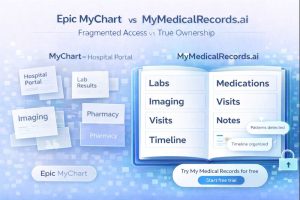
Epic MyChart vs. MyMedicalRecords.ai: Portal Access vs. True Ownership
Epic MyChart vs. MyMedicalRecords.ai: Portal Access vs. True Ownership Meta description: Epic MyChart only shows records from one hospital system. MyMedicalRecords.ai aggregates 100% of your
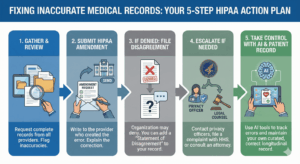
What to Do If There Is Inaccurate Data in Your Medical Record
The chart that does not match you You probably discovered the inaccurate medical records error because something routine went wrong: a prior authorization denied, a

From Chaos to Clarity: A Family Caregiver’s Guide to Unified Health Records
Here’s what nobody tells you about caregiving: The hardest part isn’t watching your loved one struggle with their diagnosis. It’s trying to keep track of
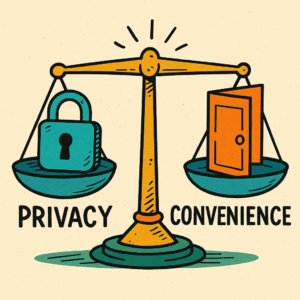
Privacy vs Access: Finding the Right Balance in Your Digital Health Record
Healthcare interoperability is the ability of different healthcare systems, devices, and applications to seamlessly share, understand, and use patient data across organizations and geographic boundaries.

Healthcare Interoperability: Why Systems Can’t Connect
Healthcare interoperability is the ability of different healthcare systems, devices, and applications to seamlessly share, understand, and use patient data across organizations and geographic boundaries.

How to Merge Medical Records from Multiple Doctors and Avoid Errors & Duplicates
Learn how to merge medical records from multiple doctors, avoid duplicate entries, and reduce errors. Use AI tools like My Medical Records to simplify the process.

